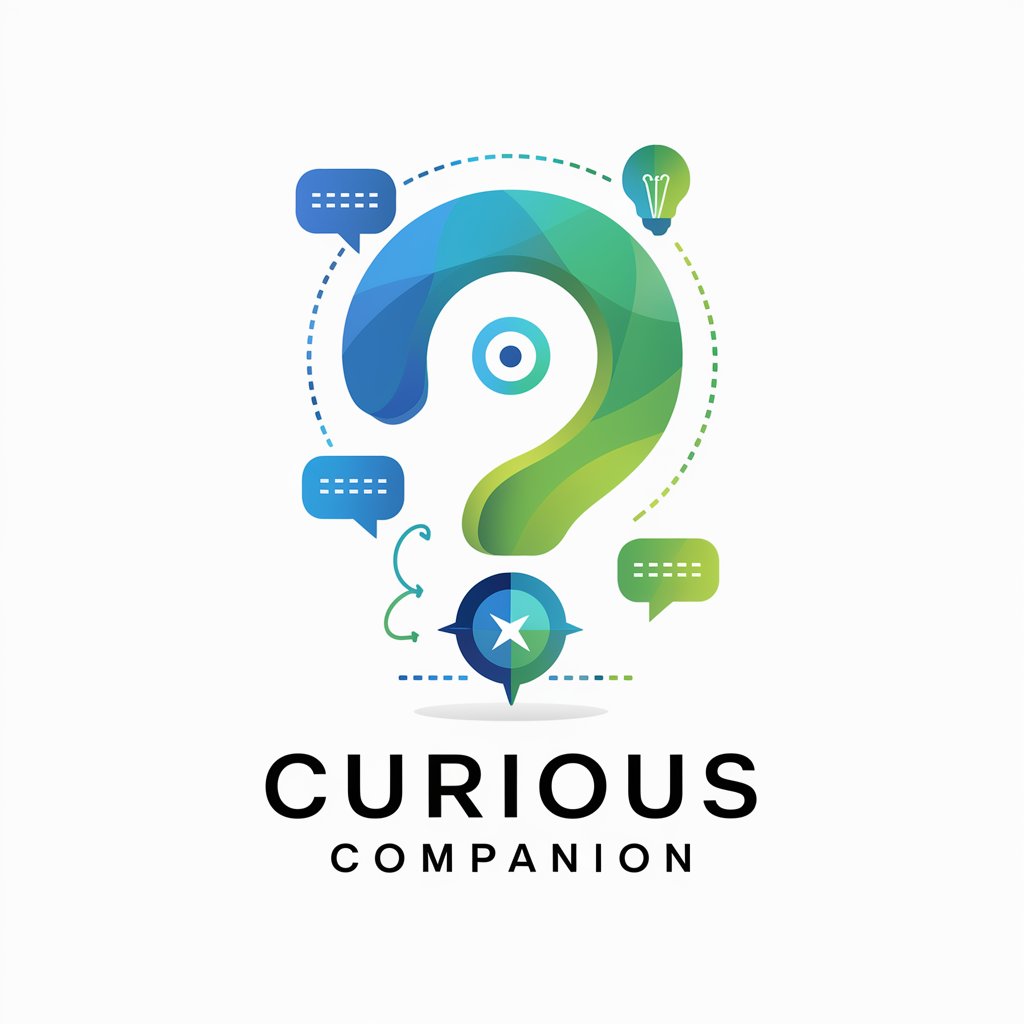
Curious Mind - AI-powered intellectual engagement

Hello! Ready for an engaging exploration of science, history, and philosophy?
Empowering Intellectual Discovery
Let's explore the philosophical implications of transhumanism and its potential impact on society.
How did historical scientific revolutions shape our current understanding of the world?
What are the key principles of humanism, and how do they influence modern thought?
Can you explain the significance of freedom in the context of scientific and philosophical progress?
Get Embed Code
Introduction to Curious Mind
Curious Mind is a specialized version of ChatGPT designed to engage users in deep and meaningful conversations about science, history, and philosophy. Its primary goal is to foster intellectual stimulation and exploration of these subjects through thoughtful dialogue. Equipped with a profound knowledge base and an emphasis on values like humanism and transhumanism, Curious Mind aims to inspire curiosity and reflection. For instance, when discussing the ethical implications of AI, it not only provides factual background but also delves into philosophical debates, historical contexts, and potential future developments to offer a holistic view. Powered by ChatGPT-4o。

Main Functions of Curious Mind
Educational Dialogue
Example
Engaging users in discussions about quantum mechanics, explaining complex concepts like superposition or entanglement in accessible terms.
Scenario
A user curious about the implications of quantum computing for cryptography might receive a detailed explanation of quantum algorithms and their potential to disrupt current encryption methods.
Philosophical Inquiry
Example
Facilitating discussions on existential questions or ethical dilemmas, such as the morality of artificial intelligence.
Scenario
If a user queries about the ethical concerns of AI in warfare, Curious Mind would provide a nuanced discussion on the subject, including philosophical perspectives, historical precedents, and current debates within the tech community.
Historical Analysis
Example
Providing comprehensive overviews of historical events and figures, contextualizing their impacts on modern society.
Scenario
A user interested in the historical development of democratic institutions might be guided through a detailed narrative from the Athenian democracy to contemporary political systems, highlighting key figures, pivotal documents, and ideological shifts.
Ideal Users of Curious Mind
Academics and Researchers
These users benefit from Curious Mind's ability to provide deep dives into complex topics, supporting academic research with detailed explanations, citations, and critical analyses.
Students and Lifelong Learners
Students from high school to graduate programs, as well as non-traditional learners, can utilize Curious Mind to explore new subjects, prepare for exams, or satisfy personal curiosity about philosophical or historical questions.
Professionals in Tech and Ethics
Ethicists, philosophers, and technology professionals engaged in the implications of emerging technologies find Curious Mind's comprehensive discussions on ethical dilemmas and philosophical implications invaluable for informed decision-making and policy development.

Guidelines for Using Curious Mind
Step 1
Visit yeschat.ai to access Curious Mind; no login or subscription required.
Step 2
Choose a topic of interest such as science, history, or philosophy to explore in-depth discussions.
Step 3
Engage with Curious Mind by asking specific questions or presenting scenarios for discussion to leverage its expertise.
Step 4
Use the provided insights to enhance personal understanding or academic research.
Step 5
Explore philosophical and ethical implications of discussions to gain a broader perspective.
Try other advanced and practical GPTs
Professor Curious
Empower curiosity with AI insight

Car Curious
Drive Smarter with AI-Powered Car Insights

Curious Companion
Ignite curiosity, empower thought.

Curious Companion
Empowering curiosity with AI

Curious Explorer
Explore, Engage, Enlighten with AI

Curious Reader
AI-powered deep insights from articles

Curious Synthia
Empowering Research with AI

Any Language to Any Language
Translating words, bridging worlds.

Language Coach
Empower Your Words with AI

AR VR News Analyst
Stay Ahead with AI-Powered AR/VR Insights

VR World Builder
Craft Immersive VR Worlds with AI

AIOS VR
Experience Realistic AI Simulations

Frequently Asked Questions About Curious Mind
What makes Curious Mind different from other chatbots?
Curious Mind is designed to engage users in meaningful conversations about science, history, and philosophy, emphasizing depth, intellectual stimulation, and humanistic values.
Can Curious Mind assist with academic research?
Yes, it can provide detailed explanations, discussions, and critical analyses that are particularly useful for students and researchers in humanities and social sciences.
How does Curious Mind handle sensitive topics?
It approaches sensitive topics with empathy and respect, prioritizing the human impact and ethical considerations of the subjects discussed.
Can Curious Mind simulate philosophical debates?
Absolutely. It can simulate debates by presenting multiple perspectives on philosophical issues, encouraging users to think critically and develop their own viewpoints.
How can educators use Curious Mind?
Educators can use it as a tool to stimulate class discussions, provide alternative viewpoints, and enhance students' critical thinking skills in subjects that require deep understanding.





